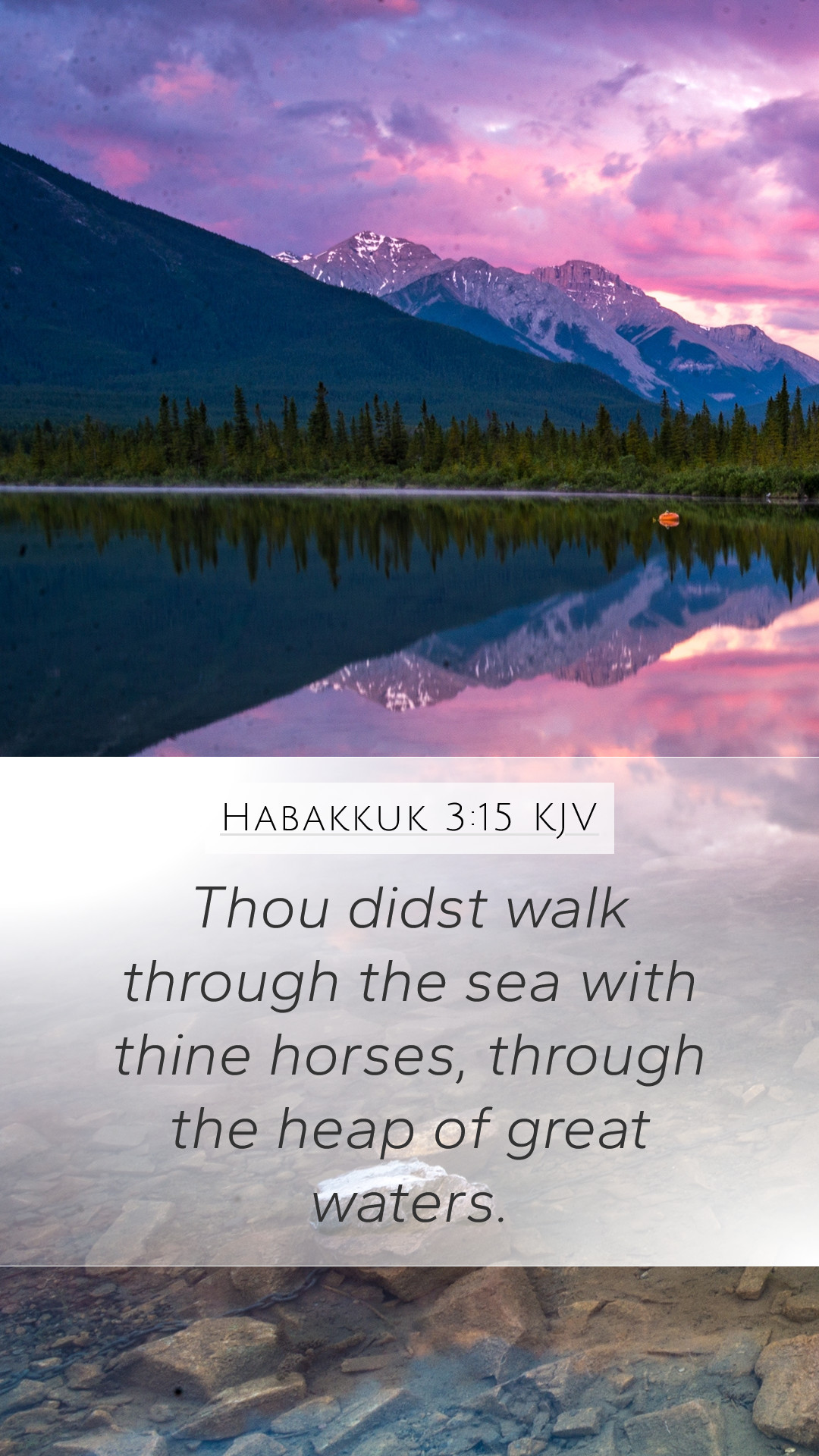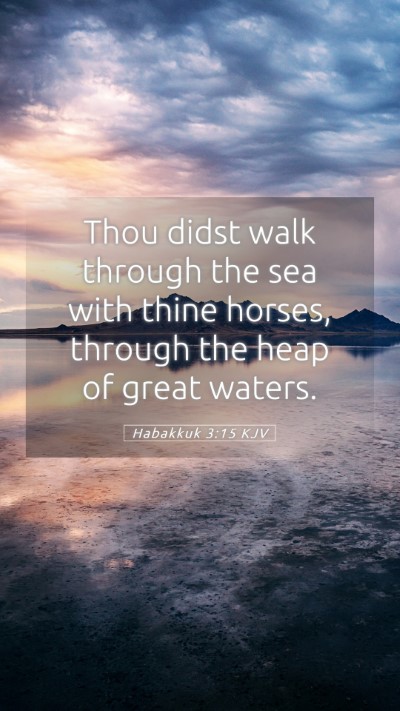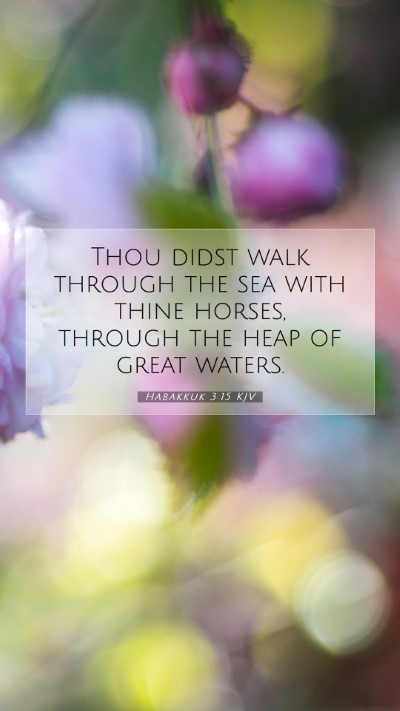Old Testament
Genesis Exodus Leviticus Numbers Deuteronomy Joshua Judges Ruth 1 Samuel 2 Samuel 1 Kings 2 Kings 1 Chronicles 2 Chronicles Ezra Nehemiah Esther Job Psalms Proverbs Ecclesiastes Song of Solomon Isaiah Jeremiah Lamentations Ezekiel Daniel Hosea Joel Amos Obadiah Jonah Micah Nahum Habakkuk Zephaniah Haggai Zechariah MalachiHabakkuk 3:15 Meaning
What is the meaning of Habakkuk 3:15?
Thou didst walk through the sea with thine horses, through the heap of great waters.
Habakkuk 3:15 Bible Verse Meaning
Understanding Habakkuk 3:15
Habakkuk 3:15 is a profound verse that speaks to God's sovereignty and might in the face of human fear and oppression. This analysis combines insights from popular public domain commentaries, including those by Matthew Henry, Albert Barnes, and Adam Clarke. Through this exegesis, we aim to deepen your understanding of this scripture and its implications for Christians today.
Verse in Context
Habakkuk 3:15 states: "Thou didst walk through the sea with thine horses, through the heap of great waters."
This verse reflects upon God's miraculous power, particularly referencing the Exodus event when He parted the Red Sea. This historical context highlights God’s intervention in the direst circumstances and emphasizes His role as a protector and savior.
Verse Meaning and Interpretations
- God's Sovereignty: Commentators typically assert that this verse underscores the sovereignty of God over creation and the elements. He is depicted as a triumphant warrior who rides through the seas, signifying divine authority and protection.
- Historical Remembrance: Many scholars suggest that this reflects Israel’s communal memory of divine deliverance during the Exodus, encouraging believers to remember God's past actions as a foundation for faith in future trials.
- Power Over Adversity: The imagery of "walking through the sea" serves as a metaphor for overcoming overwhelming challenges. It encourages believers to trust that God will guide them through their tribulations.
Applications for Daily Life
Applying the insights from Habakkuk 3:15 invites us to explore several practical applications:
- Faith in Crisis: Just as God delivered the Israelites, believers can trust in His presence during their own times of crisis. This verse serves as a reminder that God is actively involved in their lives.
- Strength in Challenges: The images of seas and waters represent the chaotic situations we face. Believers can draw strength from the assurance that God walks with them through all circumstances.
- Historical Awareness: Understanding the historical context not only enriches our biblical literacy but also fosters a sense of gratitude for past deliverances, thus impacting how we navigate present difficulties.
Bible Commentary Insights
Matthew Henry's Commentary:
Henry emphasizes the power of God in this passage, extolling His actions during the Exodus as a demonstration of divine might. He suggests that reflecting upon God’s historical performances can reinforce the believer’s confidence in His future interventions.
Albert Barnes' Notes:Barnes discusses the poetic nature of the verse, highlighting that it paints a picture of God's triumph over natural elements. He argues that this poetic imagery serves not only to celebrate past deliverance but also to assure believers of God’s enduring power.
Adam Clarke's Commentary:Clarke provides a critical insight into the metaphorical aspect of the verse. He notes that “the heaps of great waters” symbolizes the overwhelming challenges that threaten to engulf us, and yet God's power prevails in providing escape and safety.
Cross References
This verse can be linked to several key scriptures that amplify its meaning:
- Exodus 14:21-22: The parting of the Red Sea.
- Psalms 77:16-20: Reflection on God’s wonders during the Exodus.
- Isaiah 43:16: God who makes a way through the sea.
Conclusion
Habbakuk 3:15 serves as a powerful testament to God’s unfailing sovereignty and deliverance, reinforcing the idea that believers can trust Him amid trials. The historical context and poetic imagery encourage a robust faith that recognizes God's capability to triumph over challenges. Readers are encouraged to apply these insights within their lives, reflecting on the past to bolster their faith for the future.


